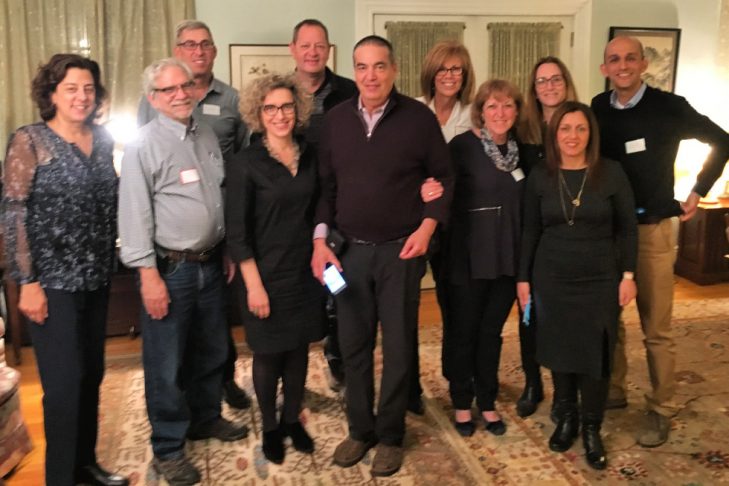“Mishpacha” is such a seemingly straightforward Hebrew word—it means family.
Older members of the Jewish community may know its Yiddish version “mishpokhe” pronounced with the emphasis on the second syllable. However you choose to pronounce it, its meaning is the same. But among Jews, mishpacha does not just refer to blood relatives. It typically has a deeper meaning of tribal connection. It’s the feeling that Jewish people are like relatives without any actual family relationship.
Last Friday night, I experienced the phenomenon of Jewish mishpacha-like bonding when my husband and I hosted six of the Wexner Foundation Israeli senior leaders in our home for Kabbalat Shabbat dinner. We also invited three other Jewish American couples with strong ties to Israel.
From the moment the Israelis entered our home, you would have thought all of us had known each other for a lifetime. The flow of conversation and fellowship was entirely natural and unstoppable.
These six Israelis are part of a larger group of highly accomplished officials who come for a month to study leadership at the Harvard Kennedy School. Their program wisely includes exposure to the Diaspora Jewish community to better understand the challenges of being an American Jew, as well as our community’s increasingly complicated relationship to Israel.
There is no question that there is a growing divide between our communities, particularly among the younger generation. However, it’s also important to celebrate our unique sense of shared history and values. Given the profound differences in our life circumstances, the ongoing sense of togetherness we often experience is actually remarkable and worthy of our ongoing cultivation.
As the group of Israeli men and women departed Friday night, one of them shared with me that he had initially felt skeptical about what to expect from the evening, but after being with all of us, was moved by how much he felt at home in the situation. I can only assume that the magical sense of mishpacha that was so evident as we all shared a Shabbat meal together made a deep and lasting impression on him, as it did on all of us.
American Jews and Israelis are indeed family. And as in any extended family, we have our differences. But we must take every opportunity to cultivate our personal relationships to each other to deepen our mutual understanding and concern for each other.
Regardless of our varying degrees of religiosity, we all sang the same words and melody of “Shalom Aleichem” and the Kiddush as we welcomed the Sabbath around the table together.
Somehow, these magical Shabbat moments, and our natural ability to so easily connect to one another, give me hope for the future of our global Jewish mishpacha.
This post has been contributed by a third party. The opinions, facts and any media content are presented solely by the author, and JewishBoston assumes no responsibility for them. Want to add your voice to the conversation? Publish your own post here. MORE



